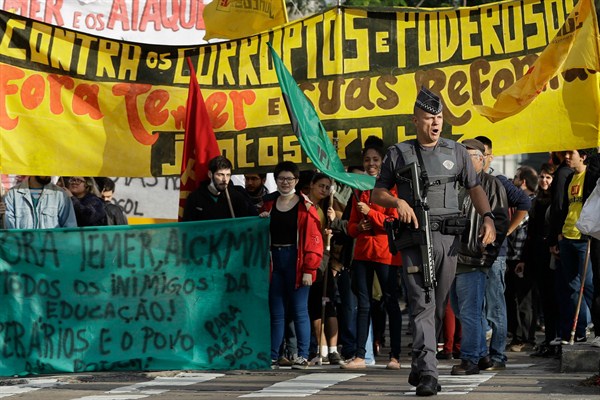Editor’s note: This article is part of an ongoing WPR series about workers’ rights in various countries around the world.
Though mired in scandal and dogged by low approval ratings, Brazilian President Michel Temer has pushed forward with reforms that stand to dramatically reshape the country’s labor market. In general, these reforms, including a law he signed last week, are geared toward scaling back worker protections and increasing the power of employers. In an email interview, Salo Coslovsky, an associate professor of international development at the Robert F. Wagner Graduate School of Public Service at New York University, explains how workers’ rights have evolved in Brazil and why the current reforms are taking place despite the country’s current political turmoil.
WPR: What has been the traditional status of workers’ protections in Brazil, and how had these evolved in the years leading up to Brazil’s recent political turbulence?

